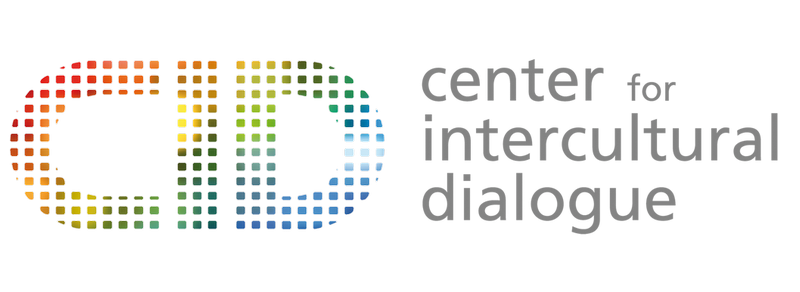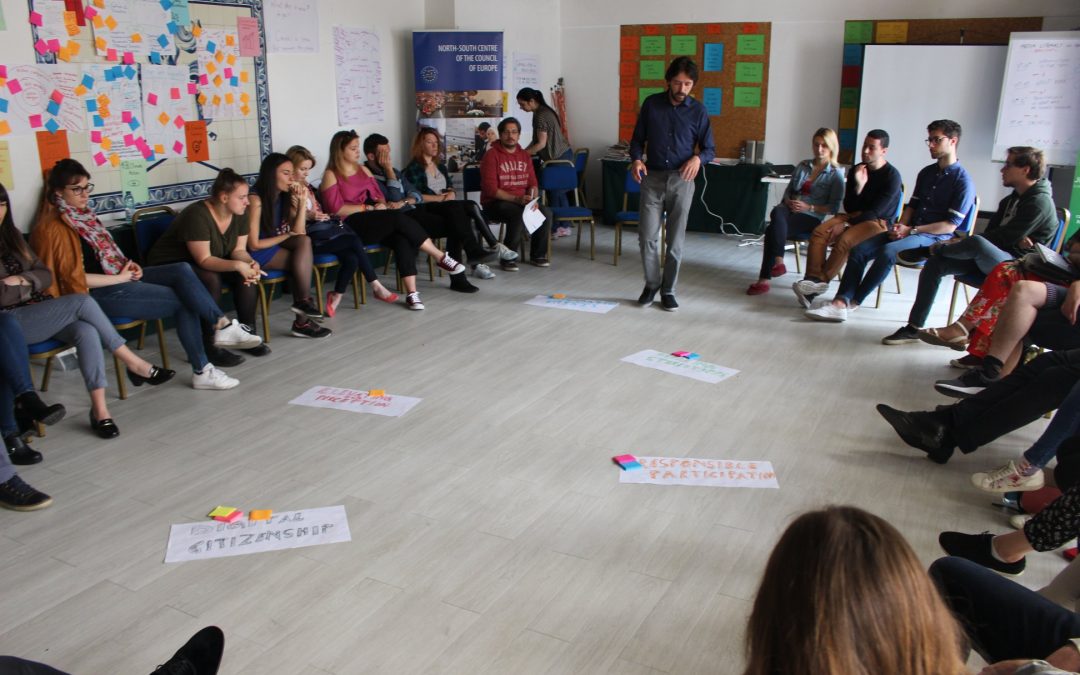What do we – youth workers, project managers, educators and trainers – understand by global education? And how, if even possible at all, can we incorporate global education in our daily work on the ground?
In order to discover the answers to these questions, I embarked on a journey that brought me to beautiful Cascais in Portugal, for a week spent together with practitioners in the field of youth from Europe and beyond. The training course, titled „Global Education for Youth Multipliers”, was organised by the North-South Centre of the Council of Europe and gathered 30 participants who work in the field of youth to explore concepts related to global education and to learn about tools and practices that can be incorporated and multiplied in their work back home.
The training course was designed to cover several aspects related to global education. The journey took us from the introductory part where we explored our understanding of global education to an experiential learning moment where we ourselves experienced global inequality and distribution of wealth through a simulation. This served as a ground for the group to further advance into global education concepts by discussing the SDGs: which ones are closer to us personally, which SDGs our organisations work on, how are they connected and how we can do more by exploring the links between them and between us as practitioners. A special place was dedicated to understanding the role of media literacy in global education: after receiving an input from a renowned journalist (insert name), we explored media literacy in smaller groups by using various techniques, such as newspaper theatre, discussions, sketches, experiential learning exercises, etc. Finally, the training was closed with a session where all participants worked on possible collaborations via online and offline tools (joint projects, online campaigns and platforms, etc.)
A special moment in the training was the round table that our group was invited to attend. Titled „Global Economy, Local Social impact, Local Economies, Global Social impact”, the round table brought together several representatives of the public, non-profit and the business sectors, in order to discuss how we can bring about social impact on local level by successfully integrating approaches that work on global level. We learned about some pretty amazing initiatives and were pleasantly surprised with the commitment of the Municipality of Cascais to implement SDGs and to give space to young people to participate in the process of creating social impact. The fact that Cascais is the European Youth Capital in 2018 is giving the municipality a lot of visibility and a lot of opportunities to engage youth in the process of making Cascais an enjoyable and socially responsible city towards everyone.
So what is global education, after all? Well, we came to the conclusion that there is no universal definition for it. What we took as a reminder from the training course is that, in order to practice global education, a starter-pack would include a) some basic knowledge on global processes, on concepts such as democracy, social inclusion and social equity, non-formal education and youth work; b) skills related to facilitation, critical thinking, media literacy, understanding group dynamics and c) a comprehensive set of values, which includes but is not limited to empathy, openness, respect for diversity, willingness to challenge one´s perspectives, passion.
This is what 4 days of living together an experience can do to a human being: you return home thinking that nothing much has changed, yet you think twice before using that plastic straw they give you in the bar while having drinks with your friends, or you start a new recycling policy in your organisation to mobilise your colleagues to waste less paper and plastic. The most beautiful lesson to remember is that global education starts with us, each and every one of us; we are the superheroes we are looking for.
Elena CEBAN


